Imagine being bathed in a soft orange glow, where minimal lines meet a cozy atmosphere, and warm light itself becomes part of the dining experience. This is SCUSA Restaurant, the new Italian spot in Lisbon designed by Portuguese architecture studio SPACEGRAM, developed in collaboration with Nómada Group.
The studio, founded by Ana Ferrão, Bruno Pereira, and Gilberto Pedrosa, is driven by curiosity and experimentation, convinced that bold design does not need to be loud or ostentatious. Instead, it allows nuance to do the work so that confidence emerges with elegance rather than excess. Their practice is guided by a simple principle: to build the kind of studio they would want to collaborate with if they were the clients. For SPACEGRAM, design does not end at the opening night or the first service but continues to live, evolve, and resonate long after.
That makes clear why, from the outset, the ambition was clear: to break away from the easy clichés of “Italian style” and offer instead a renewed vision of Italian hospitality. SCUSA avoids superficial trends or fashionable gimmicks and instead focuses on the essence of what a restaurant should be – balancing function and beauty without relying on the cold efficiency of modernist codes. The result is an environment that feels both personal and timeless, carefully tuned to warmth, conviviality, and authenticity.
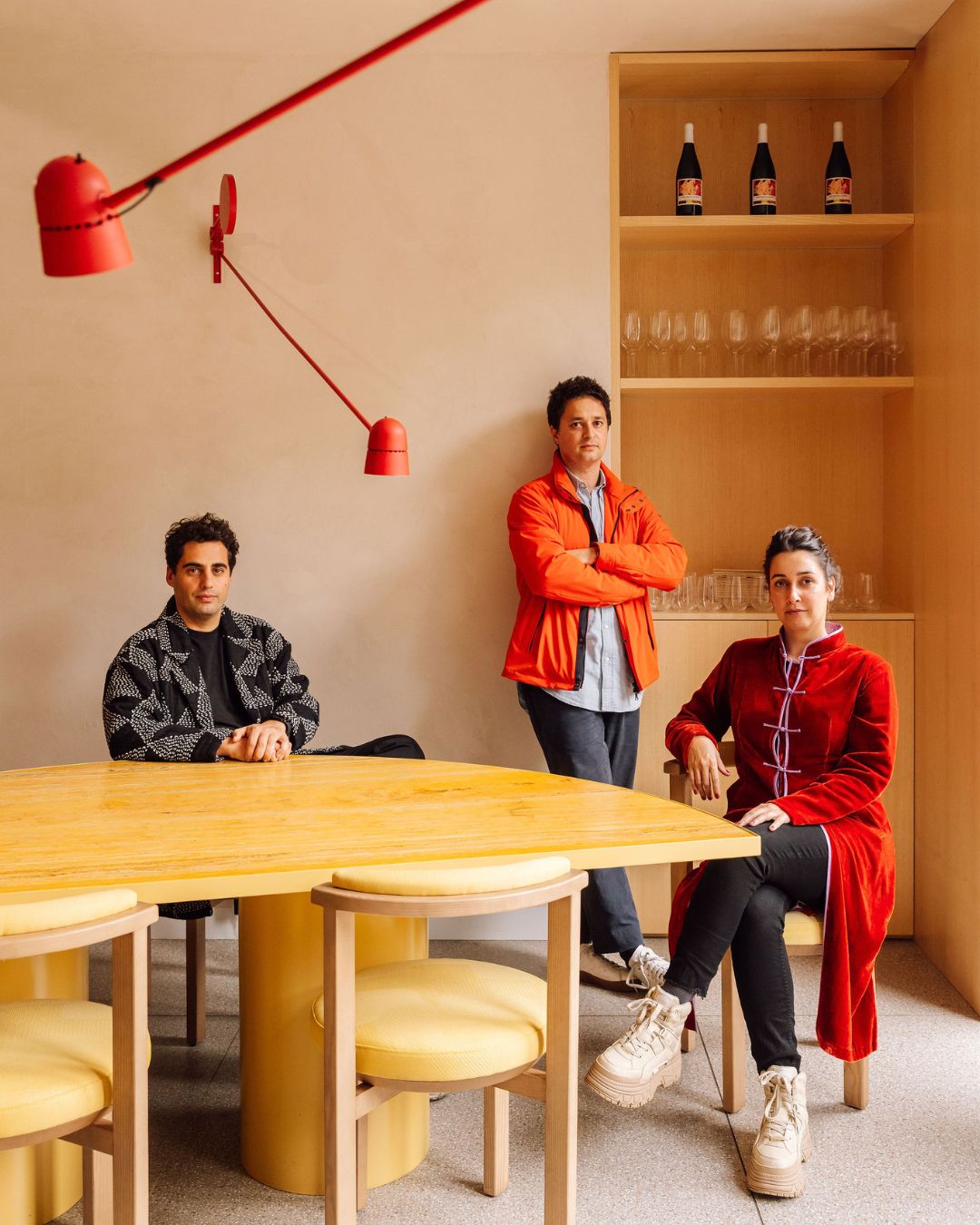
SPACEGRAM architects portrait © Francisco Nogueira
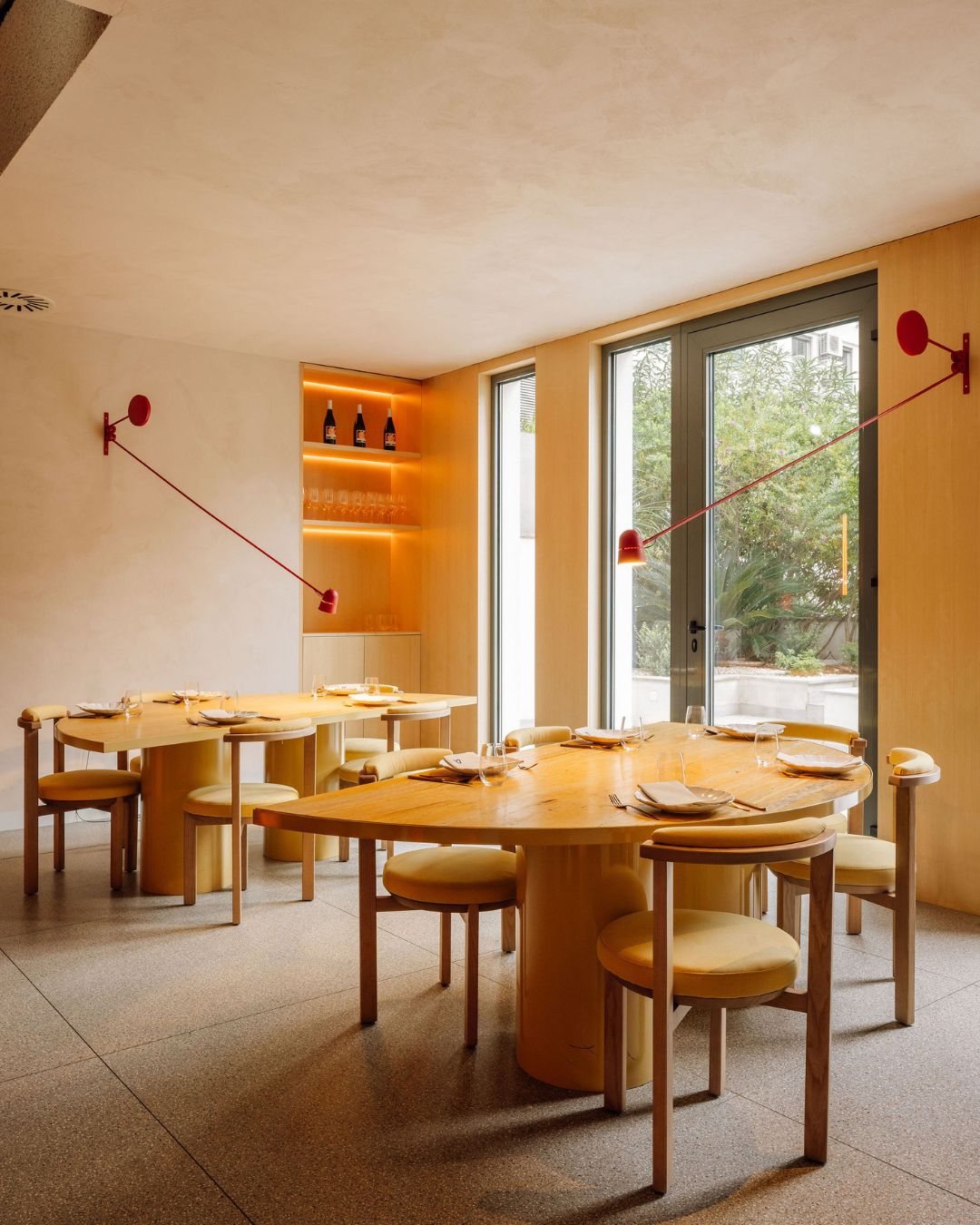
SCUSA restaurant in Lisbon, SPACEGRAM architects © Francisco Nogueira
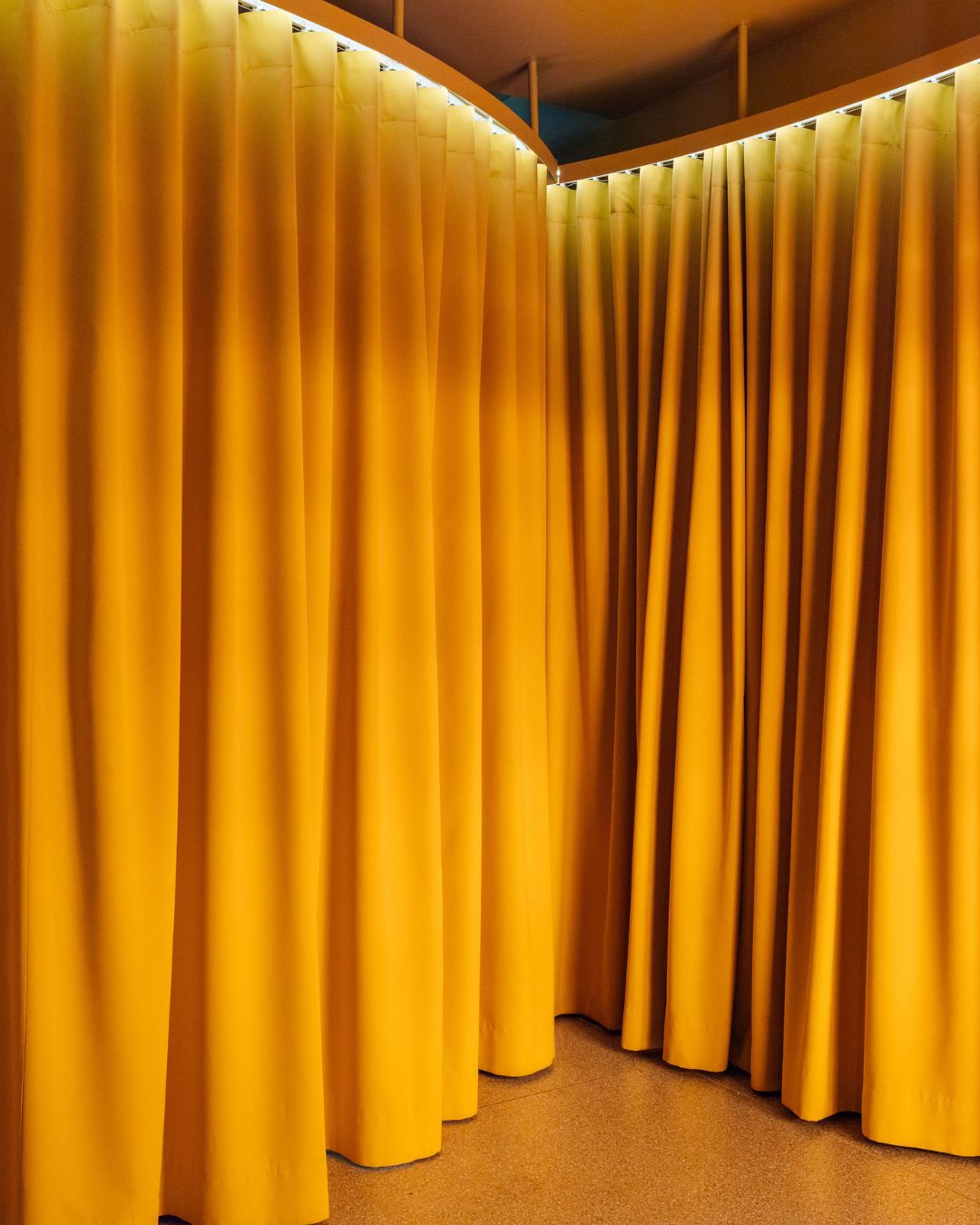
SCUSA restaurant in Lisbon, SPACEGRAM architects © Francisco Nogueira
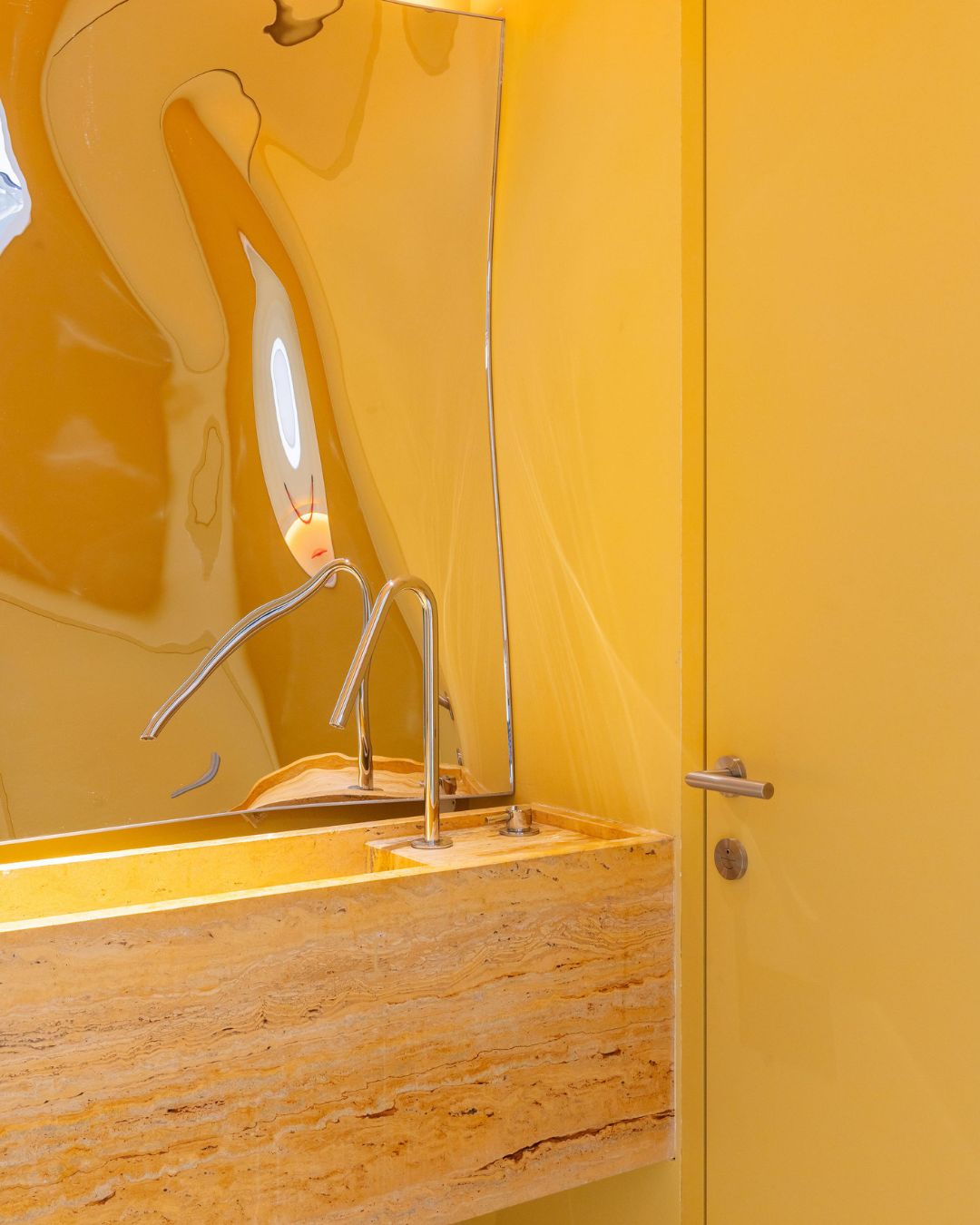
SCUSA restaurant in Lisbon, SPACEGRAM architects © Francisco Nogueira
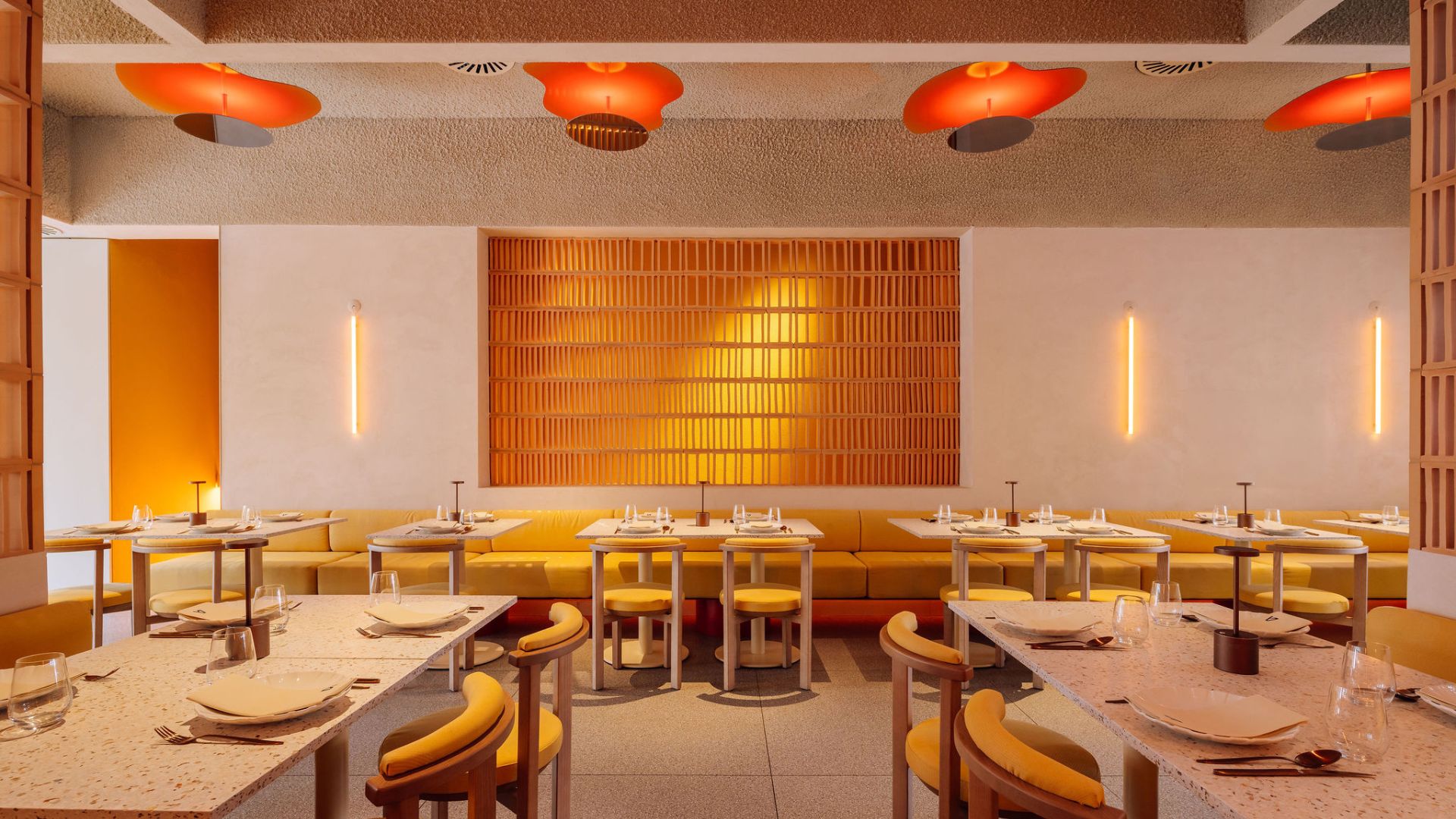
SCUSA restaurant in Lisbon, SPACEGRAM architects © Francisco Nogueira
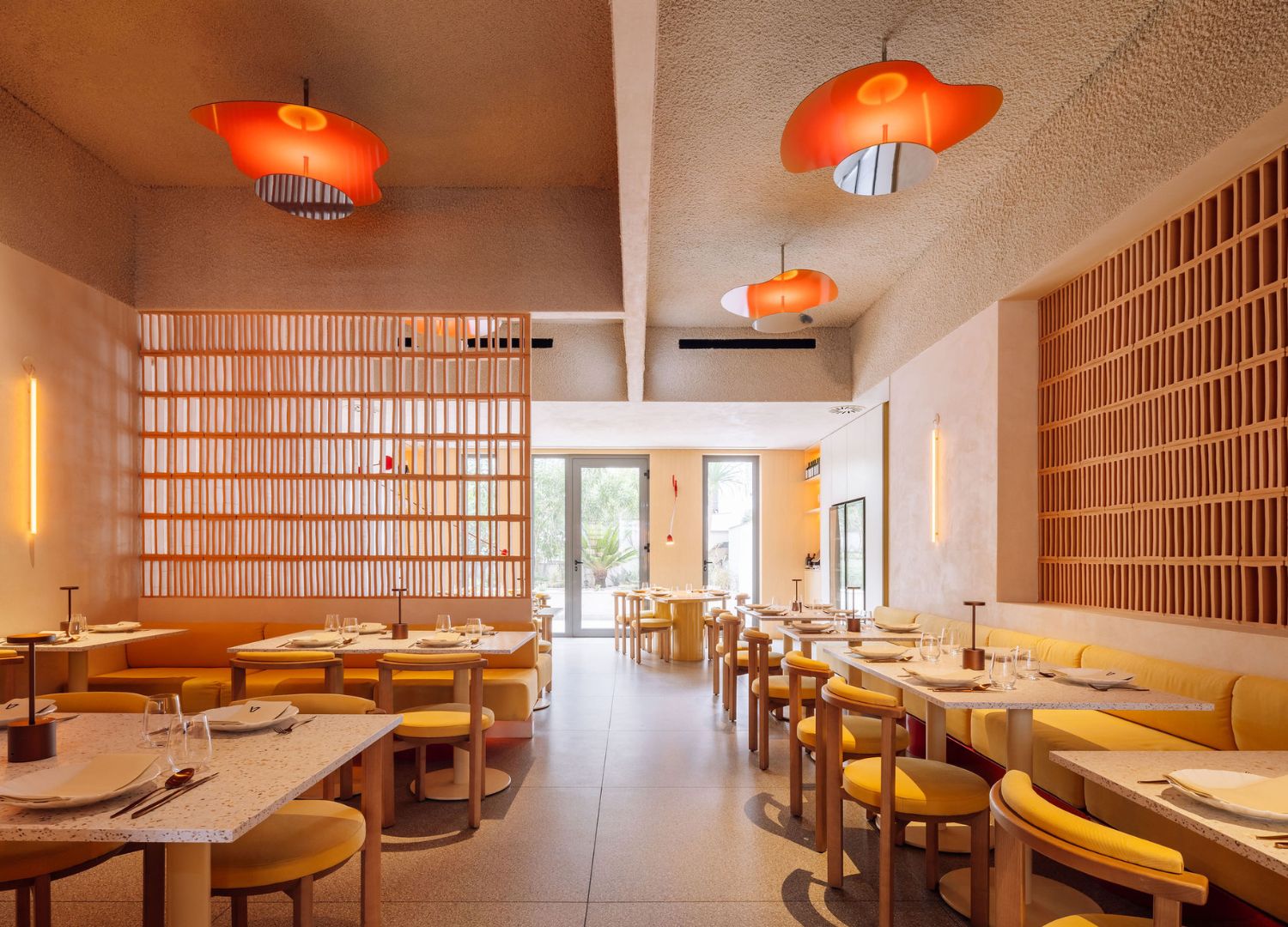
SCUSA restaurant in Lisbon, SPACEGRAM architects © Francisco Nogueira
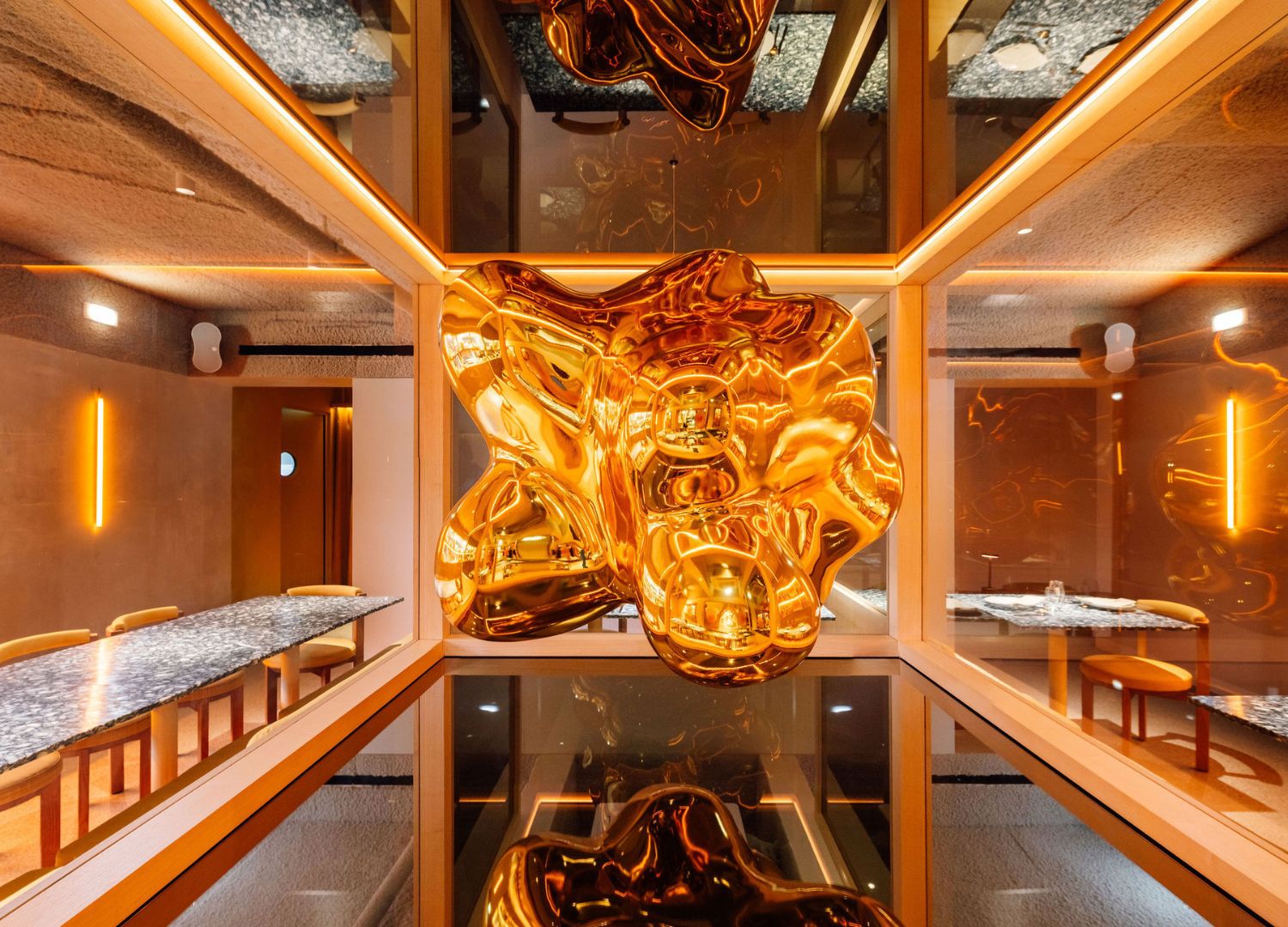
The “popcorn” installation in SCUSA restaurant in Lisbon, SPACEGRAM architects © Francisco Nogueira

SCUSA restaurant in Lisbon, SPACEGRAM architects © Francisco Nogueira
The design works like an emotional choreography, where light, color, and material tactility all contribute to the atmosphere. The palette ranges from sun-drenched oranges to bright golds, terracotta tones, and soft yellows. Lighting is calibrated to accentuate comfort, never overwhelming but always present, while textures invite touch and amplify intimacy. This attention to sensory detail ensures that functionality – flow of service, spatial organization, staff circulation – never overshadows the emotional resonance of the dining experience.
At its heart, SCUSA is about conviviality and food. Italian cuisine is the centerpiece, celebrated through a space that prioritizes togetherness and flow. The pizza-folded tables, intimate yet versatile, embody this idea: they allow for easy reconfiguration, encouraging both group gatherings and smaller, private moments. Lisbon’s natural light is embraced rather than resisted, entering freely through generous windows and giving the restaurant an organic rhythm that changes throughout the day.
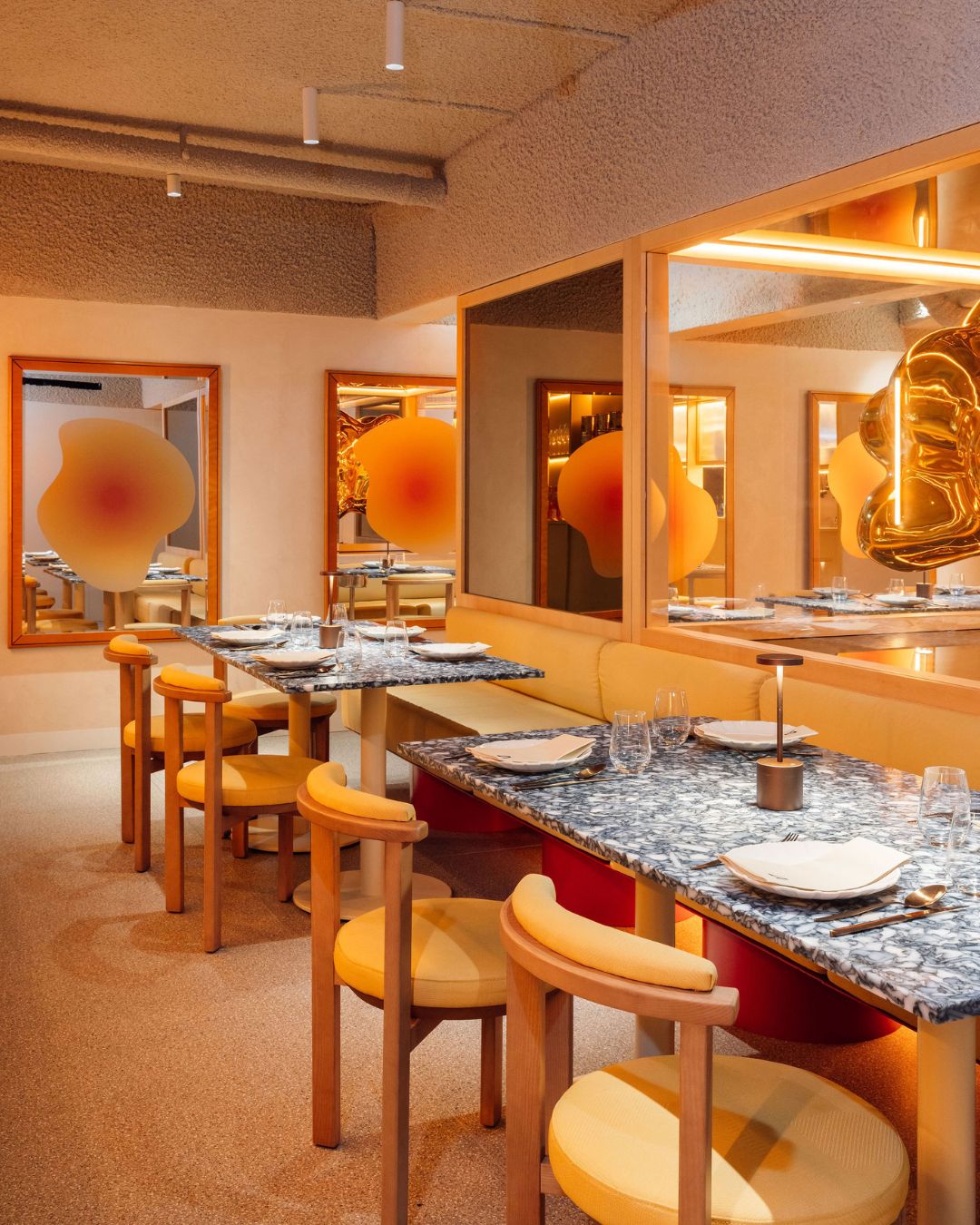 SCUSA restaurant in Lisbon, SPACEGRAM architects © Francisco Nogueira
SCUSA restaurant in Lisbon, SPACEGRAM architects © Francisco Nogueira
The restaurant unfolds in two distinct dimensions: upstairs and downstairs, public and private. The main dining area above is open and flexible, designed around conviviality and brightness. Below, the atmosphere shifts. The private room is moodier, cinematic, and textural, offering a slower, more secluded rhythm. Here, bold patterns and dimmed light create a more dramatic environment, perfect for intimate dinners or special occasions.
Art and sculpture punctuate the design, not as decoration but as narrative elements. The sculptural mirror, carefully molded and distorted, offers guests a playful moment of reflection – both literal and metaphorical – bending perception and amplifying light. The downstairs hosts one of SPACEGRAM’s most interesting installations, the sculptural piece called “Popcorn”. Inspired by rising dough, it is both playful and monumental. An ode to creativity, growth, and the fundamental ingredient of Italian cuisine. Together, these elements define SCUSA as the perfect synthesis of the familiar and the unexpected.
Behind this project stands Nómada Group, founded in Lisbon in 2016 by entrepreneur Rui Raposo de Oliveira and executive chef Francisco Bessone. Known for pushing boundaries in fine dining, particularly through their pioneering Japanese-fusion concepts, Nómada has consistently treated cuisine as a passport for cultural travel. With SCUSA, the group expands its vision: an Italian restaurant that avoids stereotypes while respecting cultural heritage, where the strength of the concept lies in its balance between authenticity and invention. Nómada’s hallmark – meticulous service and uncompromising attention to detail – complements SPACEGRAM’s design ethos, ensuring that the dining experience is as memorable as the space that frames it.
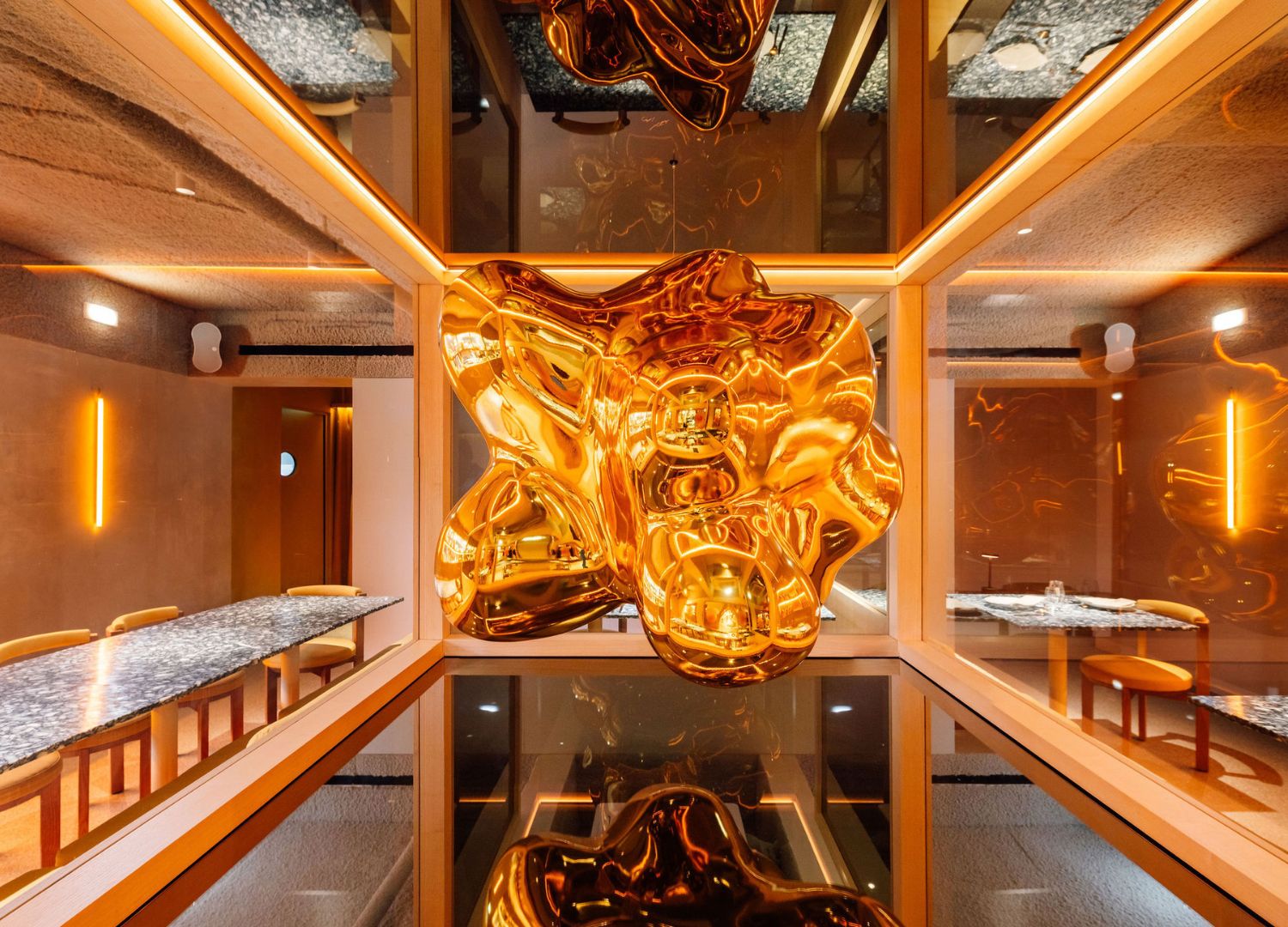 The “popcorn” installation in SCUSA restaurant in Lisbon, SPACEGRAM architects © Francisco Nogueira
The “popcorn” installation in SCUSA restaurant in Lisbon, SPACEGRAM architects © Francisco Nogueira
The collaboration between architect and restaurateur is central here. Where Nómada brings its expertise in culinary storytelling and hospitality management, SPACEGRAM translates those needs into a spatial language of warmth, tactility, and flow. Together, they have built more than a restaurant: they have created an environment where architecture, food, and service speak in unison. Dining here is about eating well and slowing down, letting the noise of the city fade, and reconnecting – whether with family, friends, or even with oneself.
SCUSA proves that restaurants do not need to chase novelty to feel contemporary, and, instead, by focusing on emotional intelligence, contextual sensitivity, and a profound respect for the act of gathering, this restaurant offers something rare: a place that feels immediately relatable, yet full of surprises. Here, the essential pleasures of food and togetherness rise to the surface. This works as an invitation to savor time, taste, and space, to embrace design that is tactile and human, food that is central and celebratory, and hospitality that is both familiar and refreshing.
Much like its name suggests, SCUSA feels like a gentle pause, an excuse to step aside from routine, and a reminder that the simplest joys are often the most special.


Dining and Cooking